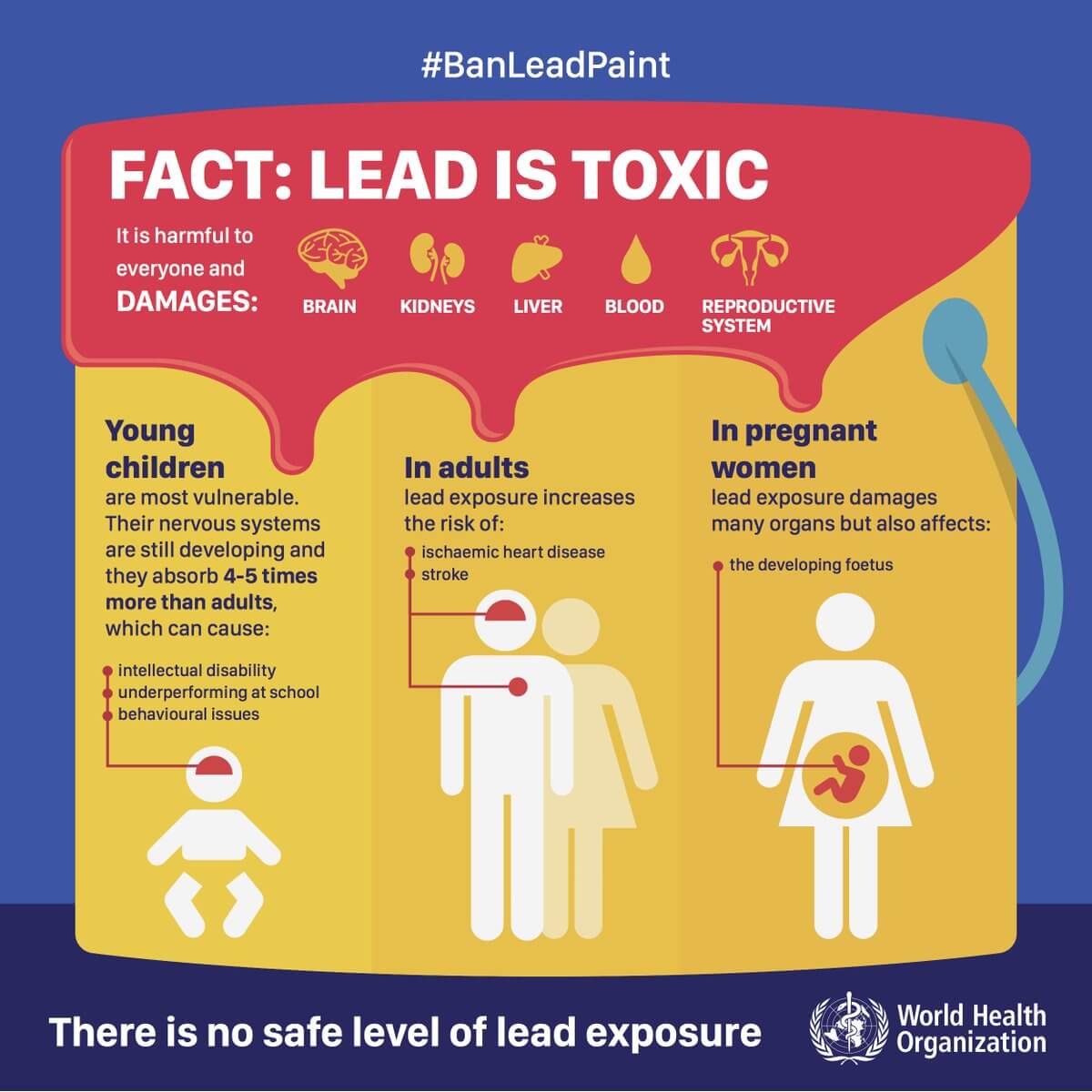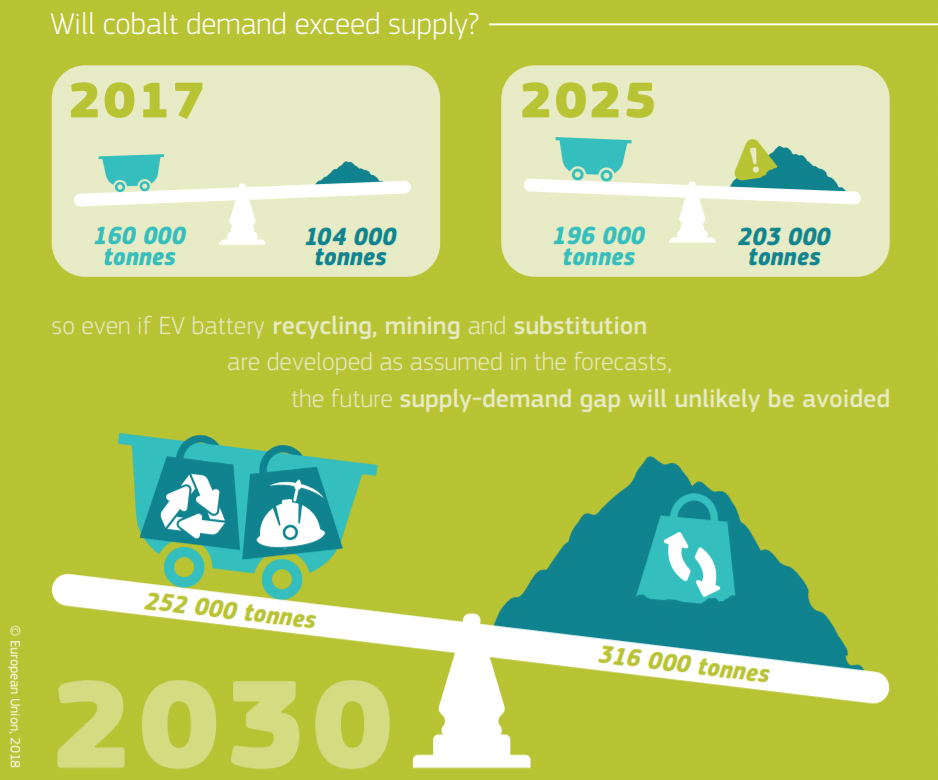It is definitely time to stop
Lead-acid & Cobalt
I/ LEAD-ACID : A POLLUTING AND OUTDATED TECHNOLOGY
Consequences for public health and the planet
Lead batteries, also known as acid or AGM, are the most commonly used. They are the cheapest batteries, but their technology is old, underperforming and excessively polluting. They are doomed to disappear because the lead industry raises serious environmental and health concerns.
- Lead is a dangerous and toxic metal.
- 85% of the world’s lead consumption comes from battery production.
- An abandoned used battery pollutes 1m³ of soil for more than 100 years.
- The flow of acid contained in the battery electrolyte causes pollution of the soil, groundwater, water…
- Used batteries causes lead and acid dust which spill in the air.
- Lead, in the form of fumes, particles or dust, can be released at all stages of the WHO lead acid recycling process
- The absorption of lead in the body causes diseases, including lead poisoning.
- Lead is responsible for the loss of 14 million years of life (a measure of the impact of pollution on the population) according to the WHO.
Wold Health Organization
Lead-acid batteries are used in motorized vehicles, for storage of energy generated by solar panels and wind turbines, and for back-up power supplies.
The growing use of renewable energy sources and the concomitant need for storage batteries, as well as the increasing demand for motor vehicles as countries undergo economic development, mean that the demand for lead-acid batteries is continuing to increase.
Approximately 85% of the total global consumption of lead is for the production of these batteries, and over half of this demand is met through recycling.
Lead, as fumes, particles and dust, can be released at all stages of the battery recycling process, from draining and dismantling the batteries, to smelting and refining the lead. Environmental contamination from recycling can be extensive and can cause significant exposure to workers and to surrounding communities. People engaged in recycling, who do not wash and change their clothes before leaving work, can bring lead contamination home with them and expose household members.
WHO’ studies :
– Recycling used lead batteries
– Prevention of lead poisoning
II/ STOP THE EXPLOITATION OF CONFLICT MINERALS
let’s stop the cobalt mining inferno
This name may not ring a bell, but cobalt has invaded your daily life. Essential in new technologies, it is a component used by most battery manufacturers.
Half of the world’s cobalt is extracted from mines in the Democratic Republic of Congo, and it is estimated that 20 % of the cobalt in this country is mined by children in artisanal mines where the most basic safety conditions are not respected. In tracing the chain, Amnesty International identified that Apple, Dell, Huawei, Lenovo, LG or Hewlett Packard, Microsoft, Samsung, Vodafone, probably use ore from this sector….
Dependency on a country and a shortage to be expected
The choice of cobalt necessarily leads to high price volatility combined with a strong dependence on a country and its political situation: the DRC, which represents 62% of reserves… Very few markets are also dependent on a single country.
And this dependence is expected to increase. In a five years’ time, the proportion of cobalt from the Central African country will rise to 70%…
However, it is now possible, thanks to LiFePo4 cell structures, to design batteries with a 5x lifetime and an inherent electrochemical safety.
These are the position and development choices implemented by Olenergies for all its products.
AMNESTY INTERNATIONAL
Particularly obscure Cobalt supply chains
The cobalt in our batteries is often exploited by violating human rights and employing children.
Amnesty’ studies :
– Child labour behind smart phone and electric car batteries
– Complete study “Time to recharge”
OLENERGIES =
LEAD-ACID AND COBALT FREE
CHOOSING OLENERGIES MEANS CHOOSING SAFETY, PERFORMANCE AND ETHICS
Lithium-based technologies remain an area of intense research that promises to bring out batteries with ever-increasing densities, but not all lithium battery technologies are equal. Lithium cobalt technologies, produced with poorly controlled processes, used with rudimentary BMS, lead to the accidental fire epidemics of the “Hoverboards” recently experienced in the United States or South Korean smartphones, although announced as high-end.
By its chemical and technological choices, Olenergies systems are among the safest on the market; the cells used are inherently non-combustible; they therefore present no danger.
Through its electronic management and management card, Olenergies systems are the most efficient and intelligent on the market; our priority objective will always be to optimize the aging of our systems and to struggle with obsolescence.
Olenergies systems combine performance, ease of use and environmental protection.










